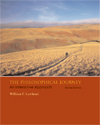 |  The Philosophical Journey, 2/e William Lawhead,
The University of Mississippi
The Search for God
Chapter ObjectivesUpon completion of this chapter you should be able to:
| 1. provide an overview of various evidentialist and nonevidentialist approaches to the issue of justifying religious belief |
 |  |  | | 2. present the key steps of the "first cause" and contingency versions of the cosmological argument and state strengths and weaknesses of each |
 |  |  | | 3. outline the argument from design (teleological argument) and discuss both the merit of Hume's objections and the extent to which Darwin's theory of natural selection grounds a significant objection |
 |  |  | | 4. explain Anselm's version of the ontological argument, together with the objections raised by Gaunilo and Kant |
 |  |  | | 5. summarize Pascal's Wager and various possible criticisms of it |
 |  |  | | 6. contrast the positions of Clifford and James on the justifiability of belief in the face of insufficient evidence |
 |  |  | | 7. state the problem of evil and weigh the effectiveness of the greater goods defense (including Hick's soul-making variety), the free will defense, and the natural order defense |
 |  |  | | 8. explain various key concepts in the Advaita Vedanta Hindu philosophy, particularly the notions of Brahman, Atman, jiva, maya, yoga, karma, reincarnation, and moksha |
 |  |  | | 9. discuss various central aspects of Theravada Buddhism, including the attitude toward divinities, the conception of objects, the anatta (no-self) doctrine, the Four Noble Truths, karma, rebirth, and nirvana |
|



 2003 McGraw-Hill Higher Education
2003 McGraw-Hill Higher Education